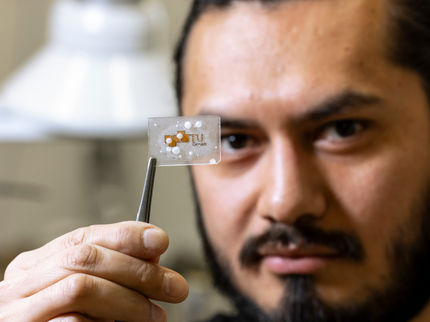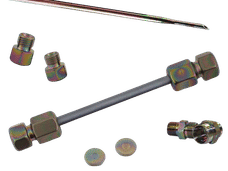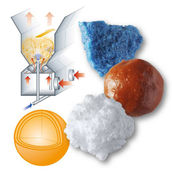Does nanoconfinement affect the interaction between two materials placed in contact?
Advertisement
Scientists show that is it possible to estimate how nanoconfinement affects the number of contacts formed by two materials placed in intimate contact and, hence, the interfacial interactions.
They considered wafers of silicon, as those largely used in microelectronics, coated by thin polymer layers of different thickness. The currently used approximate methods predict that the interaction between the two materials does not depend on the thickness of the polymer layer. On the contrary, the team of the Université libre de Bruxelles lead by Simone Napolitano, showed that size does matter. Molecules at the interface of thinner films form less contacts with the silicon wafer, because the van der Waals-forces, depending on the dimension of the objects involved, are weaker. The method used permitted to verify a striking correlation between the intensity of the vdW forces and the number of contacts.
This result shows that the current way we think at interfaces is not valid. In addition to the huge impact at the level of fundamental science, the results of the researchers of ULB could be exploited on a large number of applications. Since almost a decade, several research groups have shown that properties of many thin coatings - such as flow, the ability to retain or be repel water, the velocity of formation of crystals - depend on the number of contacts between the film and its supporting substrate. Till now, to modify this number it was necessary to change the type of molecules at the interface, often involving complex chemical reactions. The findings of Simavilla et al show that it is possible to tailor the performance of nanomaterials by simply changing their dimensions. Or even without! The research team of ULB has, in fact, also shown that placing a different material on top of the polymer layer in contact with the substrate, affects in a controllable way the vdW forces at the interface between polymer of given thickness and the substrate. This method, hence, allows controlling the polymer layer without touching it, as by using a remote control.






























































